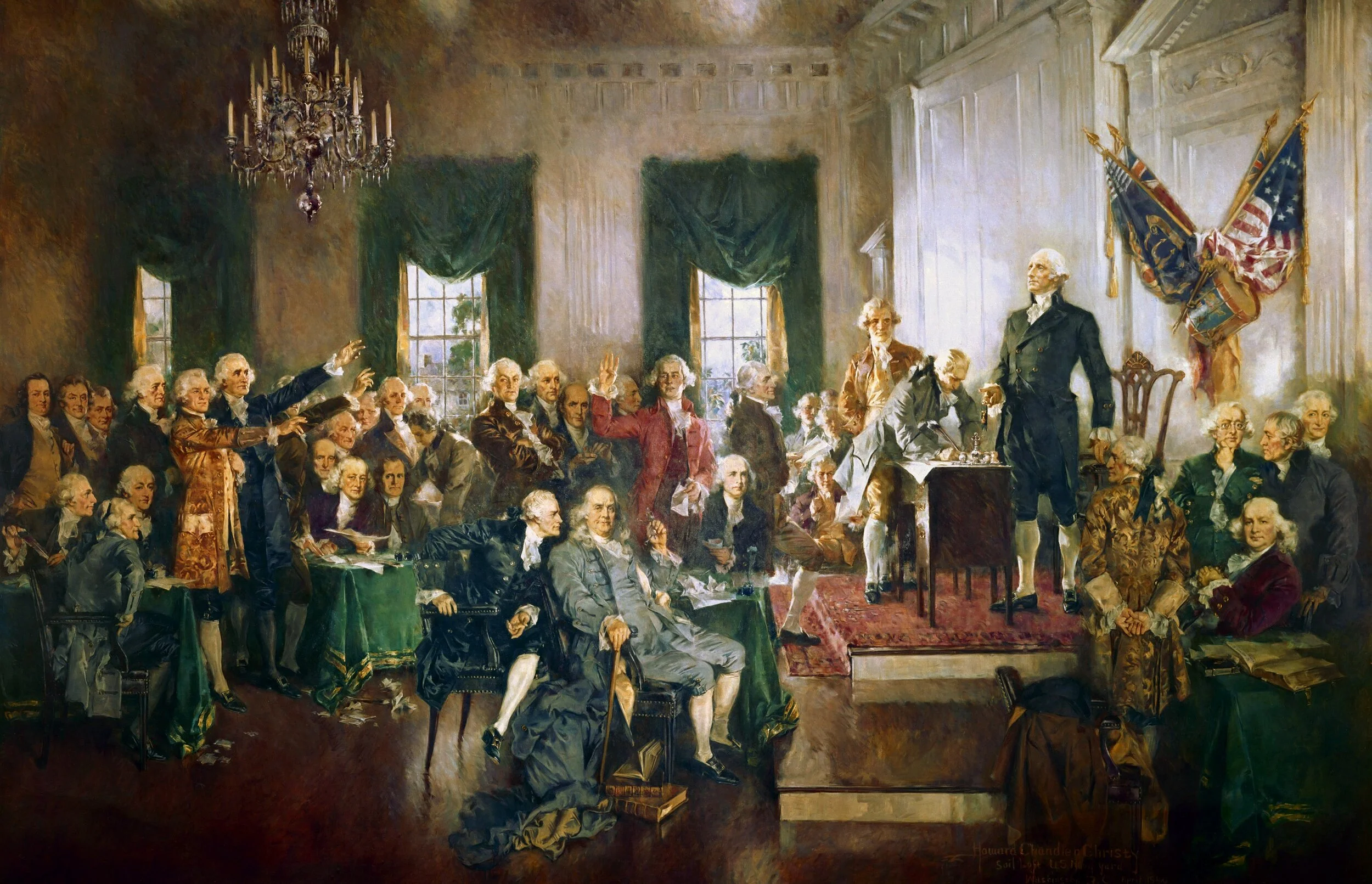Cows in the Corn
/Suppose you are a farmer who grows corn. Suppose I raise cattle in the neighboring field. A fence runs between my pasture and your cornfield. But suppose my cattle somehow get through the fence. The cattle trample your corn and damage your crop.
When you complain, suppose I say, “That’s no problem. Just chase the cattle back into the pasture.”
Sometime later, the cattle get into your cornfield again. This time I say, “Well, what do you expect with cattle like these? Cattle today aren’t like cattle were in the old days.”
The cattle get through the fence yet again, and you complain yet again. By now I am fed up with your complaining and I shout, “That fence was built by my grandfather! It is the oldest fence in the county. If you don’t like the fence, you can move to Utah where they don’t have fences at all!”
This little scenario illustrates the faulty perspective many Americans have about the Constitution.
You and I represent any two citizens or groups of citizens. The corn and the cattle stand in for any issue where people have competing and conflicting interests. The fence takes the place of the Constitution.
The whole purpose of a fence is to limit where the cattle can go. If the fence does its job, the cows can move freely and eat grass in the pasture while the corn grows undisturbed across the way. Analogously, the whole purpose of the Constitution is to empower a strong government while keeping it from trampling the freedoms of citizens.
My reaction in the first exchange (“Just chase the cattle back into the pasture”) is like the people who say America needs to “get back” to the Constitution. Decades ago there was a right-wing organization called The Committee to Restore the Constitution. It isn’t around anymore, but there are still plenty of people who think America has somehow “gotten away” from the Constitution and that “getting back” to the Constitution would help.
That is silly. The Constitution is the supreme law of the land. Every unfair law and shady government practice (deficit spending, excessive federal intrusion in local affairs, civil forfeiture, gerrymandering, voter suppression, etc.) that exists today is justified under the Constitution.
My reaction in the second exchange (“Cattle today aren’t like cattle were in the old days”) reminds me of the people who say the problem is immigrants or some other set of people who don’t fit. They think the Constitution works fine for the right sort of people, and the solution is to let only that supposed right sort have any power.
This, too, is silly. The founders very definitely recognized that they were designing a constitution that would not only govern sinful and selfish men, but would be administered and overseen by sinful and selfish men. They made the promise that the Constitution would “insure domestic Tranquility, provide for the common defense, promote the general Welfare, and secure the Blessings of Liberty” knowing full well that liars and fools would sometimes get control.
It is completely pointless to say that cattle ought respect the property line and stay on their side of the fence. They can only be expected to act like cattle. And cattle get into corn whenever they can. The job of the fence is to hold them back. If the cattle get into the corn over and over, there is something wrong with the fence.
Likewise, it is pointless to expect politicians to respect citizens and act in the public interests. They can only be expected to act like politicians. And that means we can expect them to shape public laws and allocate public money in favor of their friends. The job of the Constitution is to stop them from doing that.
My reaction to the third exchange (“It’s old and venerable!”) is like all the people who revere the Constitution merely because it is historic. Hardly anything made by men gets better with time. Apart from fine liqueurs and Stradivarius violins (and ignoring cheese and kim chee), everything fades, spoils, crumbles and decays with time. America’s Constitution is, indeed, among the oldest documents of its kind still in force anywhere in the world. That is a matter for historic pride. But it does not mean it remains the best constitution in the world, nor the best possible constitution for the United States.
Cows ought to stay in their pasture. Good fences are the best way of keeping them there. The farmer who makes excuses instead of keeping his fences up is a bad neighbor.
Politicians ought to respect citizens’ rights and provide good government for all. But they won’t unless they are compelled to. An effective constitution is the means of making them do that. The people who make excuses for an ineffectual constitution are bad citizens.
Think:
What do you think of the analogy between a fence and the Constitution?
Do you think building a better fence is possible?









